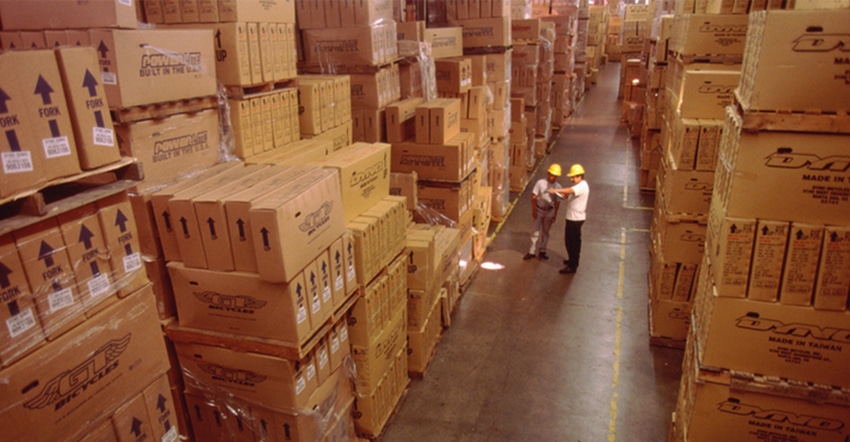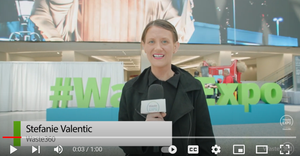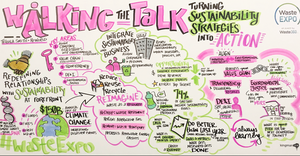AMERIPEN’S Felton’s Advice to Producers About EPR Laws Around Packaging

Extended producer responsibility laws placing onus on packaging producers to manage and pay for their products at the end of life just passed in Maine and Oregon. In 2022 similar legislation will likely be considered by California, Colorado, Connecticut, Delaware, Illinois, Maryland, Massachusetts, New Hampshire, New Jersey, New York, Pennsylvania, Washington, and Vermont.
Dan Felton, executive director of AMERIPEN, a trade association representing the whole packaging value chain, explains components of the new laws in Maine and Oregon; what consumer packaged goods (CPG) companies and brands should know to navigate the new playing field; and where they can go to learn more.
Waste360: What are main components of Maine’s and Oregon’s EPR laws?
Felton: Producer responsibility organizations (PROs) will be established in both states and producers of covered products (packaging in Maine; packaging, printed materials, and food service ware in Oregon) will be required to join a PRO and pay fees into the PRO that will be distributed to eligible entities, as outlined in the new laws, for recycling and recovery of covered materials.
Fees in Maine will be established by the state and fund 100% of recycling and recovery, whereas fees in Oregon will cover the expansion of recycling and recovery of covered materials in the state – estimated to be about 30% of total costs. Producers will have little to no involvement in the implementation and maintenance of the Maine program, whereas they will have some involvement in Oregon.
Waste360: How will it work in each of these two states that CPGs and packaging folks should know to help them navigate?
Felton: We currently expect that producers will start paying into the Oregon program in mid-2025 and the Maine program in late 2026. Details and updates for Oregon can be found here and for Maine here.
Waste360: What role has AMERIPEN played in helping shape the legislation?
Felton: Something AMERIPEN successfully advocated for in both Maine and Oregon is a statewide needs assessment that must be conducted before the packaging producer responsibility programs are fully operational to understand what exists and is needed to increase recycling and recovery of covered materials and help inform program fees and funding disbursements.
We also secured the establishment of an advisory council in Oregon in which packaging producers and other stakeholders will have the opportunity to help shape and maintain the program.
Packaging and recycling industry companies are encouraged to get involved directly or through groups like AMERIPEN in the rulemaking processes in both states over the next few years. There are still a lot of details to be worked out by the state agencies, and this is a great opportunity for industry to help with that.
Waste360: What do you think will be most challenging for the packaging and CPG industries about navigating EPR? Where do they go to learn about it?
Felton: Understanding the different requirements from state to state in terms of covered packaging products and exemptions, plus any material-specific goals that might be built in related to packaging labeling, recyclability, recycling, recycled content, source reduction, etc.
Understanding potential costs will also be challenging for companies, depending on the reach/scope of new laws and how fees are then developed, implemented, and potentially eco-modulated (reduced or increased depending on certain packaging attributes).
Navigation may be further exacerbated by companies moving packaging and products through e-commerce channels where primary and secondary packaging will be consumer facing and therefore likely covered under the new laws.
State provided resources such as referenced earlier could be helpful to companies, plus access to information from industry associations like AMERIPEN that are made available to members.
Waste360: What questions should they be asking?
Felton: What types of packaging are covered? When do the laws go into effect? And when will my company have to start paying into the program if we sell covered packaging into the state? Who will establish the producer fees? How will they be developed, and to whom and for what will be funding then be disbursed? What types of packaging and recycling goals (rates and dates), if any, are written into the new law or required of the PRO to develop and implement? What opportunities might my company have to be involved in the implementation of maintenance of the programs?
Waste360: What advice can you give to packaging industry and CPGs that operate in multiple states who may one day need to be on top of EPR in many of them?
Felton: Given that packaging producer responsibility has now officially arrived here in the U.S. and will likely expand to additional states, companies should determine as soon as possible how they feel about packaging producer responsibility, what they like or don’t like about the new laws, and what they would like to see in any new laws. Then give consideration as to whether you would prefer a state-by-state and likely varied approach to implementing and complying with these new laws, or perhaps regional or national approaches.
Waste360: What are some of the packaging folks’ and CPGs’ concerns? What can you tell them in response to these expressions of concern?
Felton: Concerns exist that poorly crafted packaging producer responsibility laws will simply shift the cost of existing systems to producers without effectively or efficiently increasing packaging recycling for all materials, and in fact may discourage or not support investment into packaging innovation and new recycling systems infrastructure.
Concerns also exist that a patchwork of disparate and potentially onerous state packaging producer responsibility laws may become unmanageable for some packaging manufacturers and brand owners and significant investments made by recycling and recovery companies may be jeopardized. AMERIPEN and other industry stakeholders are working diligently to shape state laws that won’t allow these concerns to become reality.
Waste360: How do you see EPR working in industry’s favor if you do?
Felton: Soundly crafted and implemented packaging producer responsibility laws could help drive further investment and innovation to advance and expand packaging recycling and recovery, including for materials that are currently more difficult to capture in the U.S. That’s a better outcome than de-selecting important and valuable packaging formats and could in turn stimulate state and regional recycling end market development for those and other materials and ideally even help increase the use of post-consumer recycled (PCR) content in packaging and other products. That’s a win-win for anyone who cares about increasing recycled content use.
Waste360: EPR is still early. Do you anticipate growing pains? If so, how can industry prepare?
Felton: We already have a lot of well-established EPR laws here in the U.S. for harder-to-recycle products like batteries, carpet, electronics, paint, mattresses, etc. Packaging producer responsibility laws are of course new here, but they have existed in other countries around the world for nearly 30 years.
Those existing programs have continued to evolve and work through growing pains tied to many issues, including e-commerce, eco-modulation, and shared versus full producer responsibility. We should expect similar growing pains here in the U.S. as packaging producer responsibility programs are developed, implemented, and mature. There should be motivation for industry to be closely involved in all those stages, to be informed, and to help shape the best possible outcomes.
Q: What can you tell industry to be aware of in states that are considering, EPR? How should they get involved as the discussions are ongoing among those who will be forming and or are impacted by the policy?
Felton: Be cognizant of whether a state is looking to enact true packaging producer responsibility where the producers will be able to be involved in the management and operation of the PRO and its funds to help improve packaging recycling and recovery, or will it simply be a transfer of existing costs and expenses to producers without giving them any control or involvement. The Oregon law has elements of true producer responsibility – the Maine law does not.
If you manufacturer packaging, use it as a brand owner, or recycle and recover it, understand if your state is considering packaging producer policies and get involved with your state agencies, legislators, business associations, and packaging stakeholders to be at the table rather than on the menu. And consider partnering with industry associations like AMERIPEN that are deeply engaged on this issue in those states and at the national level. You need us, and we need you.
About the Author(s)
You May Also Like




